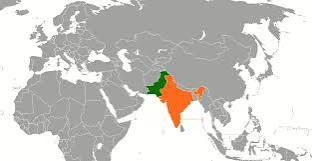
By Serge | WorldToday.online
A Line Between Light and Darkness
There are moments in history when the veil of politics must be torn apart, when neutrality becomes cowardice, and when truth must be spoken without fear. On April 22, 2025, the valley of Pahalgam, nestled in the Indian-administered region of Jammu and Kashmir, witnessed a massacre that can only be described as evil.
Twenty-six innocent civilians—men, women, and children—were slaughtered in cold blood. Not because of what they had done, but because of who they were. Their faith, their culture, their heritage marked them for death in the eyes of the terrorists. Survivors tell stories that numb the soul: men were forced to lower their trousers so attackers could see whether they were circumcised—a grotesque and horrifying method to identify Hindu men. Those who “failed” this twisted test were executed on the spot.
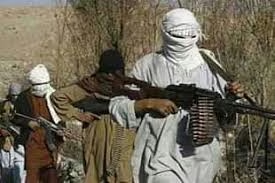
This article will not be neutral. It will be truthful. And the truth is simple: terrorism, especially religious terrorism, is a poison. It is the enemy of humanity. And those who commit such crimes—regardless of ideology, nationality, or religion—must be exposed, condemned, and defeated.
II. The 2025 Pahalgam Attack: A Crime Against Humanity
A Peaceful Morning Turned Nightmare
On the morning of April 22, 2025, a group of Indian and foreign tourists were exploring the meadows of Baisaran, a picturesque spot often called “Mini Switzerland” for its rolling green pastures and snowcapped backdrop. Among them were young couples, families, children on school vacation, and even recently married military officers.
Without warning, gunfire erupted.
Five terrorists, armed with military-grade assault rifles, emerged from the forested hillside and opened fire. They knew exactly who they were targeting: civilians. Defenseless people. Eyewitnesses recount moments of unspeakable horror—panic, blood, screaming. But it wasn’t just indiscriminate. Reports confirm that the attackers interrogated the victims. Men were asked to recite Islamic prayers or show their religious identity. If they failed—if they were identified as Hindu—they were executed.
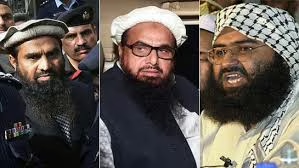
Among the dead were:
- Squadron Leader Harsh Vyas and his wife Nandini, both just married weeks before
- Lt. Commander Vinay Rawat, on leave from the Indian Navy
- An eight-year-old girl from Maharashtra, killed alongside her grandparents
- A Nepali tourist couple visiting for the first time
Over twenty others were injured, many critically.
Who Was Behind the Attack?
The group known as The Resistance Front (TRF) claimed responsibility. Indian intelligence agencies quickly connected the dots: TRF is widely regarded as a front for Lashkar-e-Taiba, the Pakistan-based terror group responsible for the 2008 Mumbai attacks and many others. The mastermind was identified as Saifullah Kasuri, alias Khalid, a Pakistani national with a long record of jihadist militancy.
TRF’s so-called justification was that the Indian government was attempting to change the demographics of Kashmir by encouraging Hindu settlement—an allegation with no basis in fact, used repeatedly by Islamist propaganda channels to incite violence.
Let us be clear: this was not an act of “resistance.” It was mass murder.
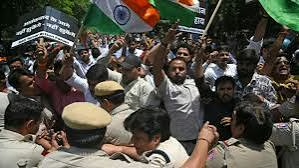
III. A Pattern of Hatred: Attacks Against Hindus in the Region
This was not the first time.
For decades, Kashmir and border areas in India have witnessed systematic violence against Hindus by Pakistan-based terror outfits. Here are just a few of the brutal incidents:
- 1990s Exodus of Kashmiri Pandits: Over 300,000 Hindus were forced to flee the Kashmir Valley under threats from radical Islamist militants. Those who stayed were often tortured or killed. Their temples were desecrated, their women targeted, their properties seized.
- 2000 Chittisinghpura Massacre: 35 Sikh men were rounded up by gunmen in army uniforms and shot point-blank. Lashkar-e-Taiba was believed to be responsible.
- 2008 Mumbai Attacks: While primarily targeting hotels and a Jewish center, the attacks also targeted railway passengers and ordinary citizens. Over 170 people were killed. The attackers singled out individuals by religion.
- 2022 Kulgam Attacks: Several migrant Hindu laborers were killed, and school teachers were shot dead for not being Muslim.
- 2024 Reasi Bus Attack: Nine Hindu pilgrims returning from Vaishno Devi temple were gunned down by militants who ambushed their bus in a remote valley.
Each time, the attackers used the same justification: resistance, occupation, or revenge. But every time, the victims were ordinary civilians—teachers, tourists, children, laborers. Unarmed. Innocent.
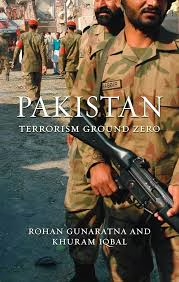
IV. The Ideological Roots of This Violence
Terrorism in the Kashmir region did not arise in a vacuum. It is the result of decades of indoctrination, foreign interference, and radicalization. In Pakistani religious seminaries, a distorted version of Islam has been taught to thousands of young men—one that frames violence against non-Muslims as divine duty. Political regimes in Islamabad have either silently supported or failed to contain these groups, using them as proxy fighters against India.
Groups like Lashkar-e-Taiba, Jaish-e-Mohammed, and Hizbul Mujahideen have openly declared their goal: to Islamize Kashmir and drive out non-Muslims. Their literature is filled with dehumanizing rhetoric, portraying Hindus and other religious minorities as “occupiers” or “infidels.”
This ideology doesn’t stop at borders. It echoes in radical movements globally—from ISIS in Syria to Boko Haram in Nigeria. It’s the same venom, wrapped in different flags. And unless confronted, it will continue to produce massacres like Pahalgam.
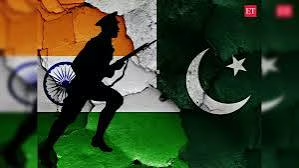
V. The Pain of the Survivors and the Silence of the World
What happened in Pahalgam is not just a story of those who died, but of those who lived. Survivors now carry psychological wounds deeper than the physical ones. Children who saw their parents murdered. Wives who held dying husbands. Families destroyed.
The Indian media covered the attack. The government condemned it. Investigations began. But where was the global outrage?
Where was the United Nations?
Where were the statements from human rights NGOs that rush to comment on every conflict elsewhere?
Where were the hashtags, the vigils, the Western journalists?
When terror strikes in London, New York, or Paris, the world mourns. But when Hindu civilians are butchered by militants in South Asia, there is a deafening silence. Why?
Is a Hindu life worth less on the global stage?
VI. A Moral Imperative: Naming Terrorism Without Fear
The time has come to stop sugarcoating reality. Words matter. And avoiding the truth for fear of offending sensibilities only helps the perpetrators.
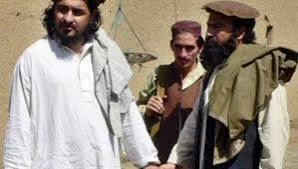
The Pahalgam attackers were not “freedom fighters.” They were religiously motivated terrorists. They did not resist oppression—they created it. They did not target soldiers—they targeted children. They were not defending faith—they were using it as a weapon.
This is not a battle between religions. It is a battle between humanity and hatred. Between life and death. Between civilization and barbarism.
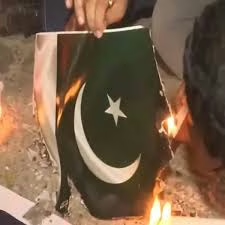
VII. Historical Parallels and Forgotten Victims
History is full of examples where evil thrived because good people remained silent. Whether it was the Armenian Genocide, the Holocaust, or the Rwandan massacres, the early stages always looked like what we see in Kashmir: selective targeting, religious tests, and propaganda justifying inhumanity.
The stripping of trousers to check for circumcision is not new. It echoes what was done during the 1971 Bangladesh genocide, where Bihari Muslims and Hindu Bengalis were similarly identified and slaughtered. It is a symbol of how deep hatred can degrade the human spirit.
We must not look away again.
VIII. Conclusion: Never Again Must Mean Something
Terrorism flourishes in silence. When we do not call it by its name, when we excuse it or hide behind false neutrality, we embolden it.
What happened in Pahalgam was not just an attack on India or Hindus—it was an attack on humanity. And humanity must respond.
Let the names of the victims be remembered. Let their families find justice. Let the world wake up.
Because if we do not raise our voices today, tomorrow it could be someone else’s valley. Someone else’s wedding. Someone else’s child.
Never again must mean something.
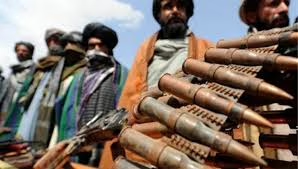
By Serge
Founder, WorldToday.online
